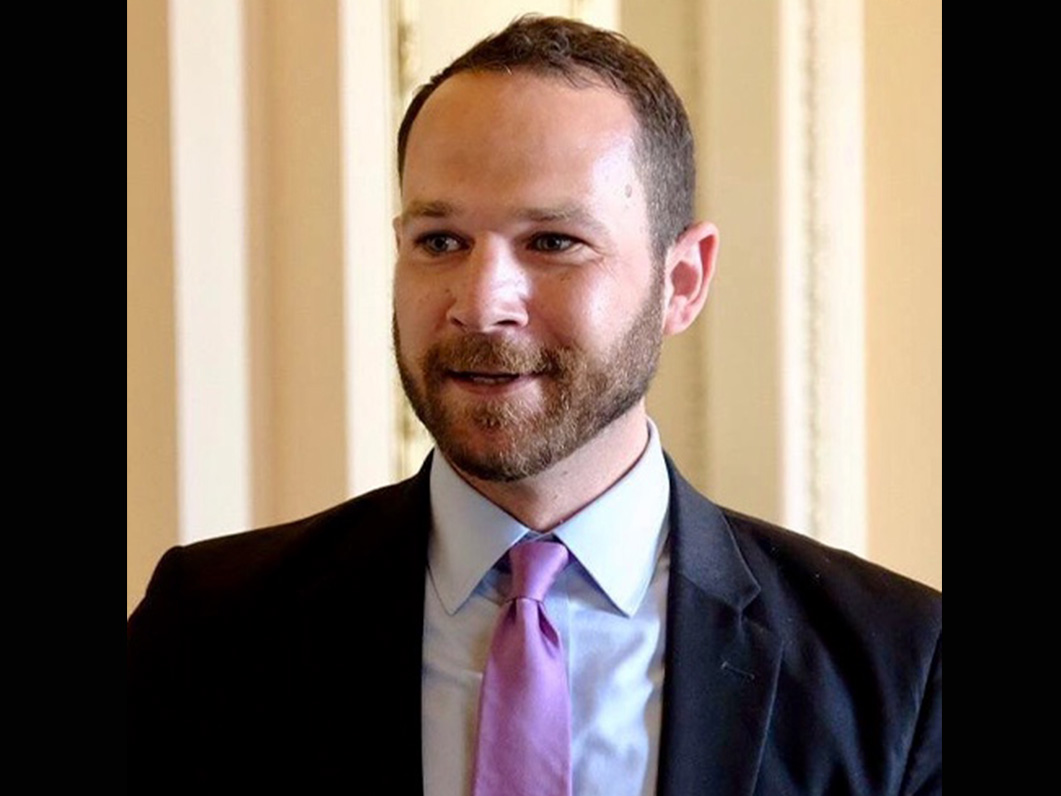Featured image: John Hollay, IFPA Director of U.S. Government Relations, Photo courtesy of IFPA
In a recent message to association members, John Hollay, Director of U.S. Government Relations for the International Fresh Produce Association, said, “Congress can pass legislation today that can provide immediate and measurable relief for producers across the country.”
Hollay went on to say in the Jan. 25 IFPA release, “Tell your Member of Congress to co-sponsor the Supporting Farm Operations Act (HR 7046) to freeze the Adverse Effect Wage Rate (AEWR).
A page link to the association’s website at https://www.freshproduce.com/advocacy/priority-issues/workforce-issues/ provides more information, with the IFPA noting in a downloadable brief, “Congress has failed for nearly four decades to address agriculture’s labor crisis. The result is a food supply chain that relies more and more on foreign workers and foreign-grown food to meet our needs. In recent years, the H-2A labor program has increasingly filled the labor needs of our producers, and as a result the program has undergone a transformation.
“Currently, all H-2A workers are paid in accordance with the Adverse Wage Rage, and over the last decade, the average AEWR has grown at twice the rate of inflation. A final rule from the Department of Labor published on February 28 would change the AEWR methodology and require farms using H-2A workers to administer separate, higher wage rates for certain jobs.”
The IFPA continued, “One meaningful measure of relief Congress can pass today without opening up our immigration system to reform is the Supporting Farm Operations Act HR 7046 introduced by Congressman John Moolenaar (R-MI). This legislation freezes the AEWR, the wage rate that must be paid to H-2A Visa holders and their domestic counterparts and applies a primary duties test when determining an employee’s salary. These reforms are critical as producers seek certainty with regards to their labor needs going forward. This concept has received bipartisan support in the past, and we need your help to build the momentum for Congress to act now. Send a message to Congress to support HR 7046, the Supporting Farm Operations Act. “
A separate press release from Rep. Moolenaar on Jan. 19 stated, “Congressman John Moolenaar introduced the Supporting Farm Operations Act (H.R. 7046), which will address the high labor costs facing Michigan farmers. The bill would freeze the wage rate for migrant farm workers, known as the Adverse Effect Wage Rate (AEWR) at the level that was established in 2023 until end of 2025. The wage requirements set for these employees are determined by the Department of Labor.”
Rep. Moolenaar said, “Michigan farmers grow and raise food for Michigan residents and people around the world. My legislation ensures they will continue to have a reliable workforce and can make ends meet while growing the food we need. I am proud to introduce the Supporting Farm Operations Act and will continue my work to advocate for the more than 11,000 farmers living in Michigan’s Second District,”
John Kran, National Legislative Counsel of the Michigan Farm Bureau was also quoted in the release as saying, “Michigan farmers who rely on seasonal guest workers need a stable and predictable wage structure to be able to keep supplying consumers with a safe and affordable food supply that’s grown on our soil. We applaud Congressman Moolenaar and his colleagues for introducing commonsense legislation that allows for a pause while Congress comes up with a long-term solution. Michigan farmers are counting on Congress to act swiftly and provide some much needed relief.”
Moolenaar’s release continued, with a quote from American Farm Bureau Federation Director of Government Affairs John Walt Boatright, who said, “Rep. Moolenaar’s bill offers the short-term stability and reforms that today’s challenges require. It’s a step in the right direction to creating a wage standard that benefits farmers and employees alike. Along with this effort, AFBF will continue to press Congress on the full reforms that deliver certainty and parity to farmers who produce food for America’s families.”
“This bill will help provide farmers, ranchers and growers utilizing the H-2A visa program with needed wage certainty and stability as they head into planting season. It is also important to note that it would clarify how primary job duties are determined and would more accurately reflect the realities of on-farm work, where pitching in on multiple tasks as needed is often the norm,” said Chuck Conner, President and CEO of the National Council of Farmer Cooperatives in the release. “I would like to thank Congressman Moolenaar and Congressman Newhouse for their leadership on this issue. We look forward to working with him and other members on next steps on needed modernization and reform to the H-2A program and the stabilization of the existing agricultural workforce.”
Cathy Burns, CEO of the International Fresh Produce Association, also added to the representative’s press release, saying, “Out-of-control labor costs are already dampening domestic fresh produce production, so we know that additional increases would have a devastating impact on the entire supply chain,” said “Congressman’s Moolenaar’s common-sense legislation freezes AEWR increases for two years, giving immediate relief and enough certainty for our industry to perform while Congress works on broader reforms that will bring stability to our labor force and long-term food security for our nation.”
Jim Bair, President and CEO of the U.S. Apple Association, said in the release, “On behalf of our growers across the nation, the U.S. Apple Association thanks Representative Moolenaar for understanding their predicament and taking this action. We call on all Members of Congress to support this effort. Bringing stability and common sense to the H-2A program will be the only way family farms can keep pace with the costs and regulatory burdens they face in producing America’ s favorite fruit.”
The release concluded, “On Jan. 1, 2024 the Department of Labor increased Michigan’s AEWR for the tenth consecutive year, to $18.50 per hour, an increase of $1.16 per hour from December 2023. This rate is the fourth highest in the nation.”


